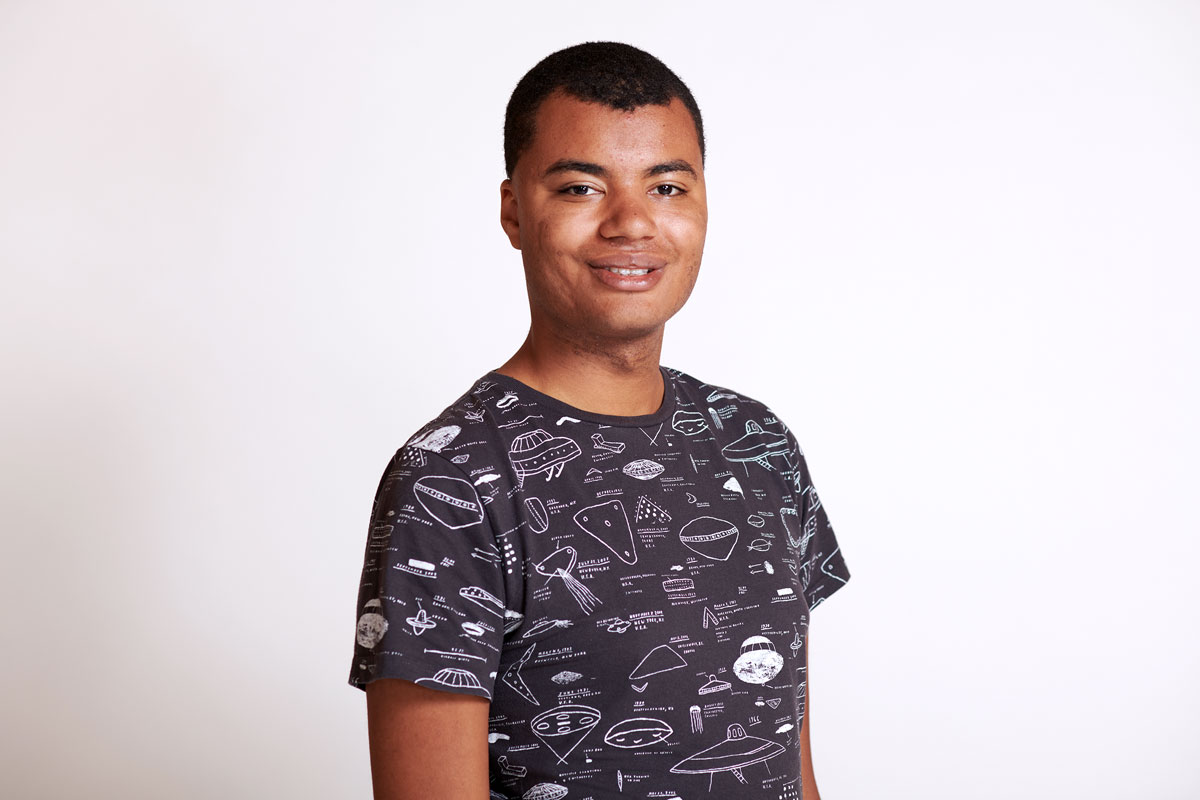Citizenship and Racism
Meet political science major Mayaki Kimba ’20.
Major: Political Science
Hometown: Purmerend, Netherlands
Thesis adviser: Prof. Tamara Metz
Thesis: Civilized Beings and the Idea of Social Citizenship
What it’s about: It concerns a highly influential essay by British sociologist T.H. Marshall on citizenship. I show that Marshall relies on assumptions that come from imperial ideology. As a result, his seminal account of citizenship perpetuates imperialism by necessitating a racialized hostility toward migrants of color.
What it’s really about: The way we think about citizenship is racist and needs to change.
In high school: I was studious and driven, but also concerned with trying to fit in.
Influential professor: Liberalism and Its Critics with Prof. Tamara Metz taught me how thought-provoking, engaged, and exciting political theory can be.
Influential book: Alibis of Empire by Karuna Mantena helped me identify not just the fallacy, but also the imperial origins of the still common view of culture as a homogeneous whole that determines all of our identities, thoughts and actions.
Concept that blew my mind: Taking classes with Prof. Radhika Natarajan [history] made me understand the analytical invalidity of distinctions between domestic and imperial histories. This has transformed how I see and understand the world.
Cool stuff: I have been the cochair of the Student Committee on Academic Policy and Planning, gone to conferences with Model UN, organized events with the International Student Advisory Board, and pitched to buy and sell stocks at Reed’s Investment Club. I did research with SEEDS to strengthen community engagement on campus, explored the role of former slave plantations as present-day tourist destinations in Curaçao (Dutch Caribbean), and visited every single station of the Berlin U-Bahn, London Underground, and Paris Métro.
Challenges I faced: Advocating for myself, being proactive in seeking out opportunities, and building relationships with faculty did not come naturally to me, especially as someone foreign to the country and elite institutions like Reed. My peers were tremendously important in helping me overcome these challenges.
How Reed changed me: I have met people here who have helped me understand our responsibilities to the communities that we're a part of and whose courage, dedication, and compassion in fighting injustice and oppression will continue to inspire me for many years to come.
Financial aid: There is no way I could have attended Reed without financial aid. In my four years, I have continued to be amazed by the opportunities that I have been able to access thanks to financial aid. It is something I cannot take for granted and remain genuinely grateful for.
What’s next: I will pursue a PhD in political science at Columbia University, focusing on political theory and aspiring to become an engaged teacher-scholar.
